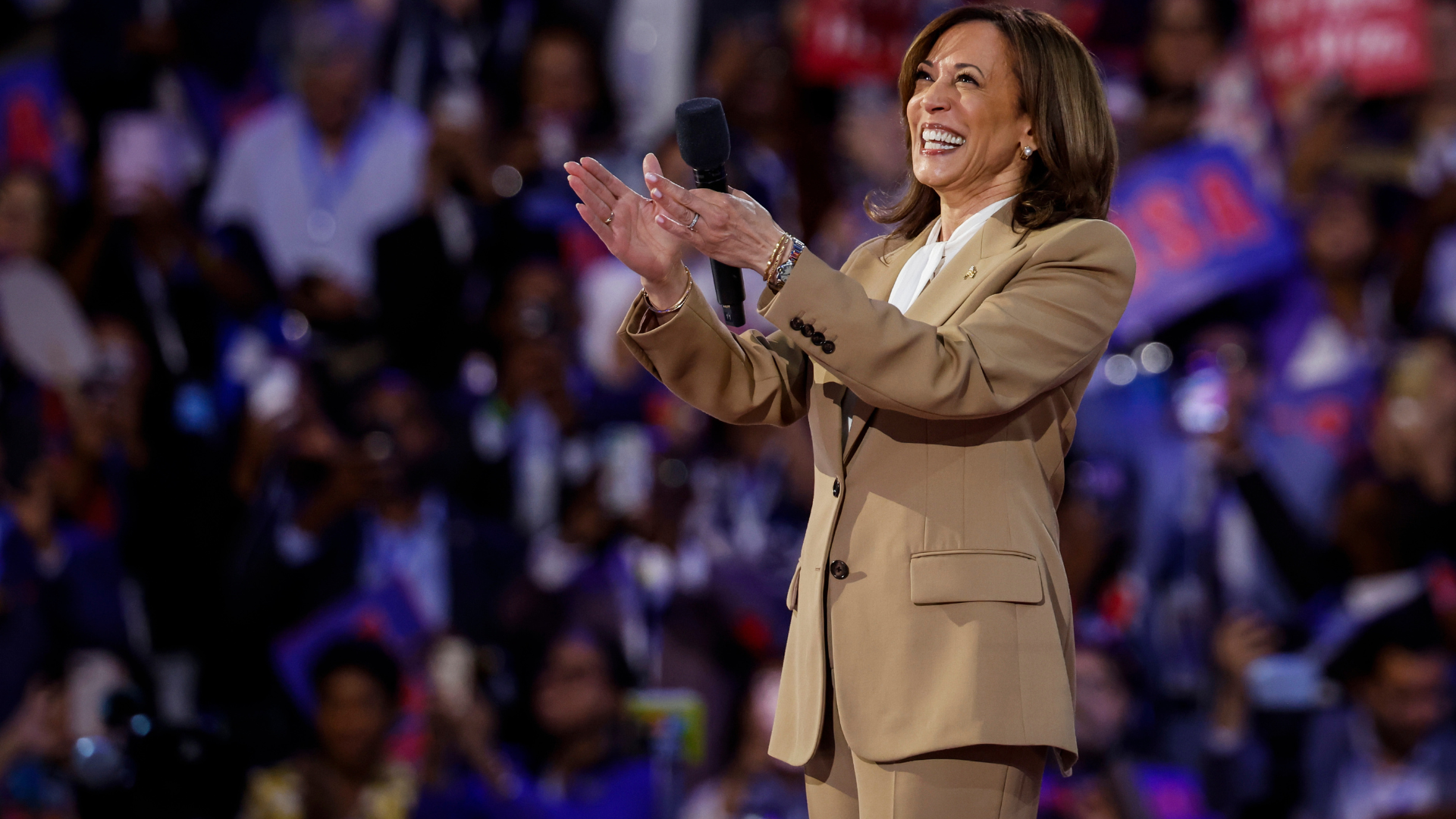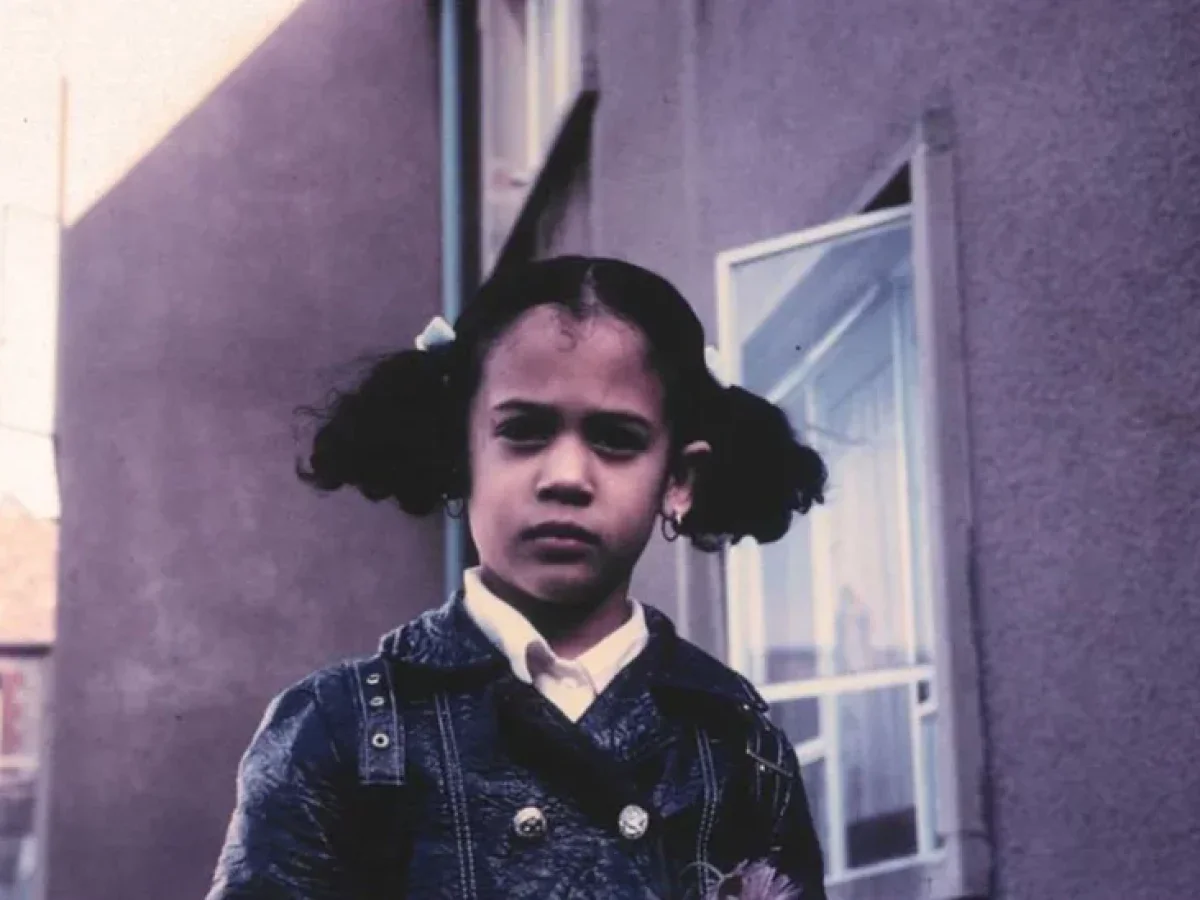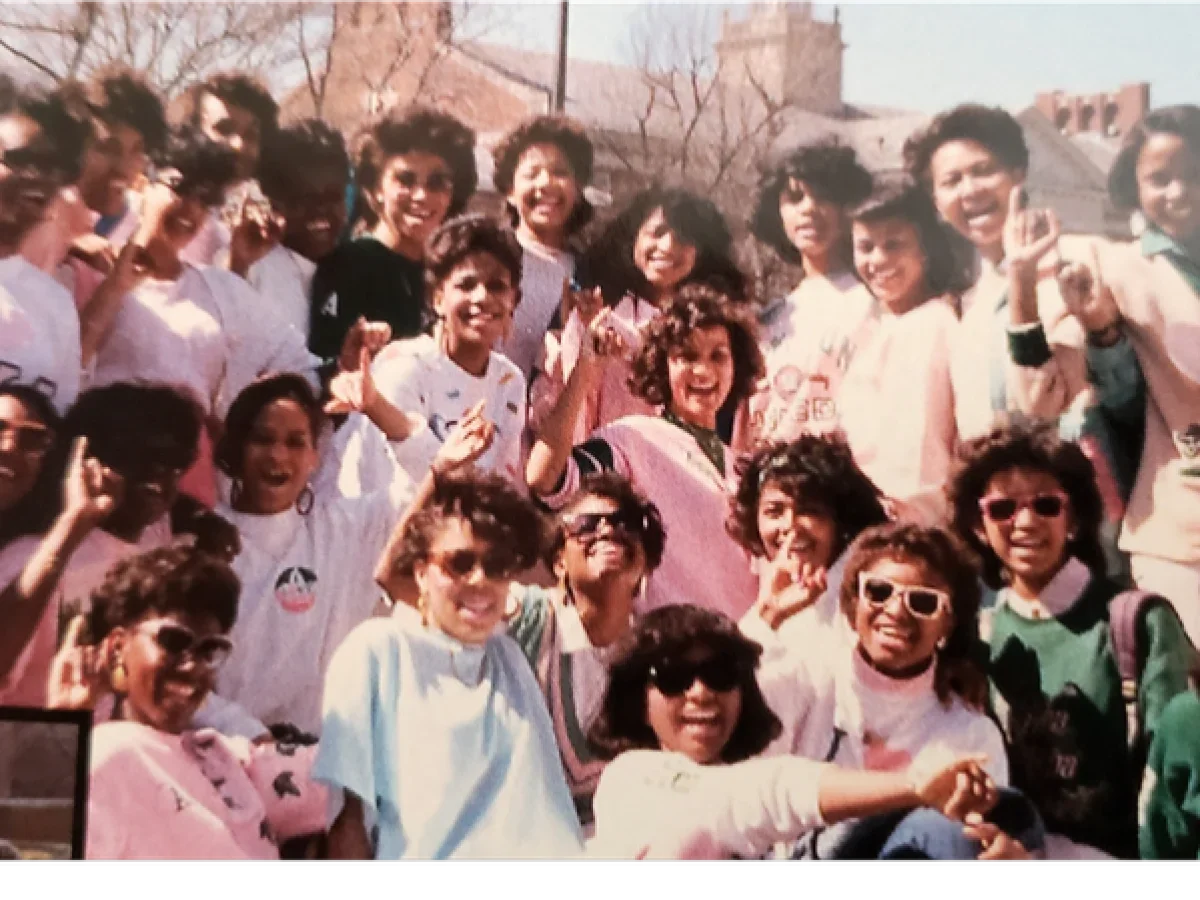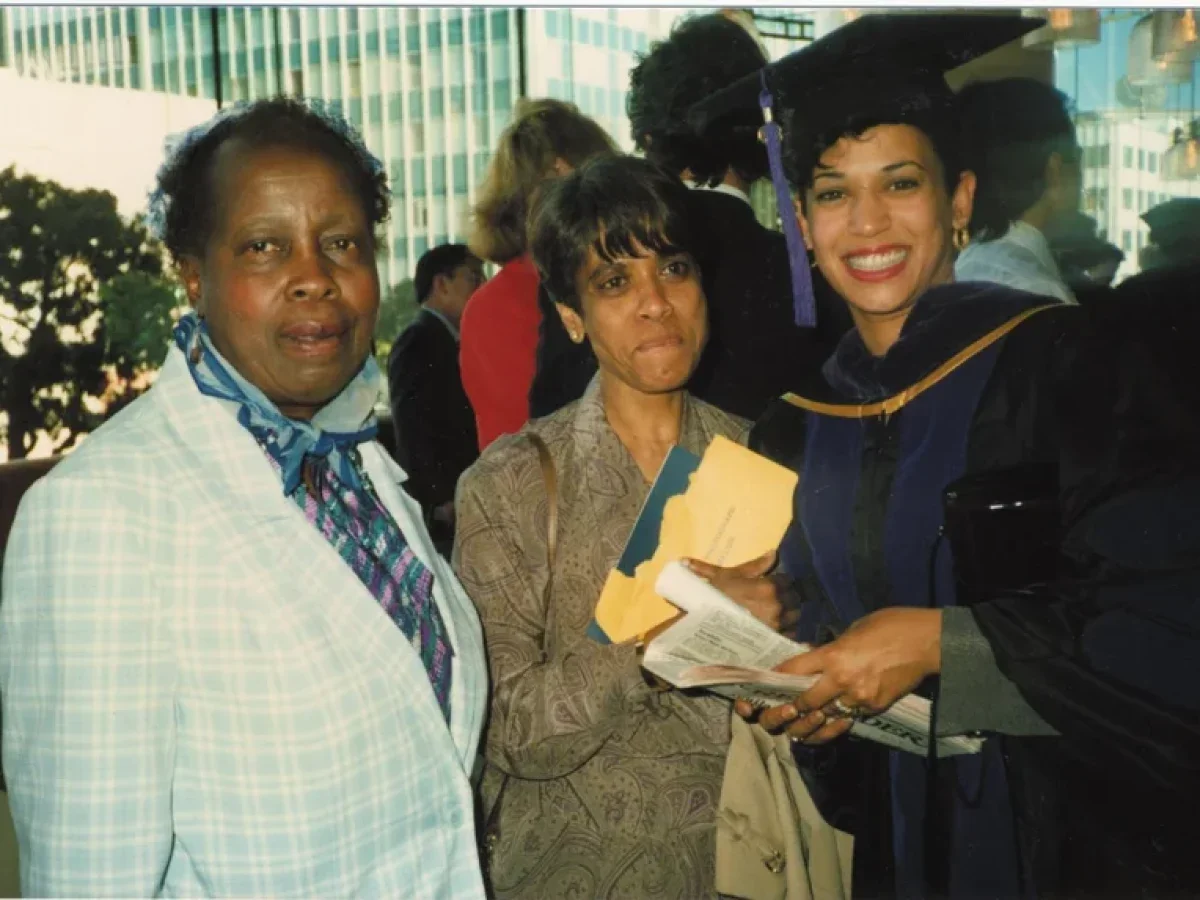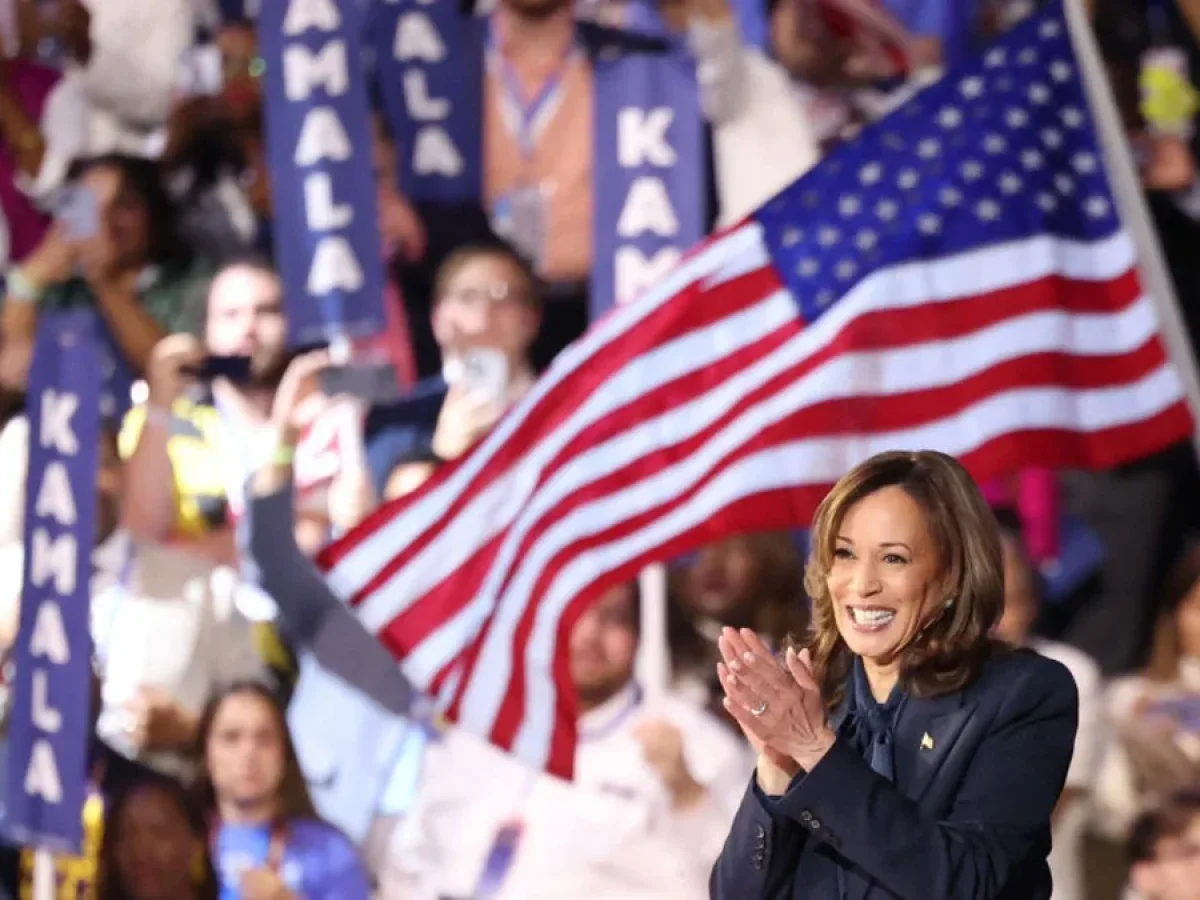Vice President Kamala Harris has forged a powerful legacy defined by resilience and groundbreaking achievements. Harris, a 60-year-old Oakland, California native and proud HBCU graduate, was born to immigrant parents: a Black Jamaican father and an Indian mother. She has blazed trails in every chapter of her career.
From her groundbreaking role as California’s Attorney General to serving as U.S. Senator, she has been a force for justice and progress. Her election as the first Black and South Asian Vice President in 2020 marked another milestone, and in 2024, she made history once again as the first woman of color to lead a major party’s presidential ticket.
Though she did not secure the presidency, Harris’ legacy of resilience and accomplishment continues to inspire. Her journey shows that the path to the highest offices for Black women and women of color is attainable, leaving a powerful example for generations to come. We have much to celebrate in all she has achieved, and her impact on history and the future remains profound.
Here’s a look back at her historic journey.
In 1964, Kamala Harris was born to an Indian mother Shyamala Gopalan and a Black Jamaican father Donald Harris, she later became a big sister to Maya Harris. Once her parents divorced, Gopalan raised her daughters to be proud of being Black. Harris wrote in her memoir “My mother understood very well that she was raising two Black daughters. She knew that her adopted homeland would see Maya and me as Black girls, and she was determined to make sure we would grow into confident, proud Black women.”
In 1970 when she was in 1st grade, Harris became part of the second class to desegregate her elementary school in Berkeley, California. She was bused to a more affluent white school and the experience led to one of the more memorable moments of her first presidential campaign in 2019. During a debate with her then Democratic rival Joe Biden she challenged his opposition to busing with the statement “There was a little girl in California…and she was bused to school every day. And that little girl was me.”
Harris chose to attend famed HBCU Howard University where she majored in economics and political science. While there in 1986, Harris pledged to the oldest Greek sorority established by Black women, Alpha Kappa Alpha (AKA). If Harris wins the White House expect some spirited chants of “Skee-Wee!” on inauguration day.
Kamala Harris began her career as a prosecutor in 1990. She was hired as a deputy district attorney in Alameda County, California where she first spoke the words “for the people” which would become her 2024 campaign slogan. Harris eventually worked her way up to assistant district attorney of San Francisco.
In 2002, Harris began her streak of groundbreaking firsts as the first woman, the first Black person, and the first Asian American to become San Francisco District Attorney. There she opposed the death penalty and established initiatives to steer non-violent offenders out of prison and into job training programs.
In 2010 Harris became the Attorney General of California, the first woman, the first Black person and first South Asian American to do so. As attorney general, Harris prosecutes gang members and combats human smuggling and fentanyl trafficking.
Harris made history again as the first South Asian-American and second Black woman to serve as a U.S. senator in 2017. There have only been three Black women elected to the Senate, the first was Carol Moseley Braun in 1992 and the third is Laphonza Butler who is currently representing California.
After Harris suspended her presidential campaign in 2019, Joe Biden selected Harris to become his vice-presidential running mate and she became the first Black person, Asian-American person and woman to serve as vice president after the Biden-Harris team won the 2020 election. Harris was charged with examining the root causes of the migrant crisis at the border in 2021 and once Roe was overturned in 2022, she began advocating for reproductive rights across the country, including a “Fight for Reproductive Freedoms Tour” which she kicked off in 2024 on the 51st anniversary of Roe v. Wade.
In July 2024, Joe Biden dropped out of the presidential race and immediately endorsed Kamala Harris to replace him. Democratic leaders quickly coalesce around her candidacy and a groundswell of grassroot supporters fill her campaign coffers with cash. Jotaka Eaddy’s Win With Black Women raised $1.5 million dollars in a just a few hours during a fundraising call and a day later Khalil Thompson’s Win With Black Men raised $1.3 million dollars during his call. Multiple other groups follow suit and to date, Harris has raised nearly $505 million dollars, a massive amount which dwarfs Trump’s $55 million
In a truncated presidential campaign of just over 100 days, Harris chose Minnesota Governor Tim Walz as her running mate and defined herself apart from the Biden administration in her first major campaign speech at the Democratic National Convention. Over the course of her campaign, Harris has emphasized her support for abortion rights, leans into her middle class upbringing to champion policies that will uplift the middle-class, promises to work across the aisle and bring a Republican into her cabinet, proposes a path to citizenship for undocumented immigrants and elevates the concerns of Black men with policy proposals specifically designed for them. The day after the 20204 election, Vice President Kamala Harris officially conceded the election to President-elect Donald Trump , delivering a hopeful and forward-looking message from Howard University, her alma mater. She urged supporters not to lose heart but to continue “the fight that fueled this campaign.”
“Do not despair. This is not a time to throw up our hands. This is a time to roll up our sleeves. This is a time to organize, to mobilize, and to stay engaged for the sake of freedom and justice and the future that we all know we can build together,” she said.

